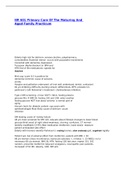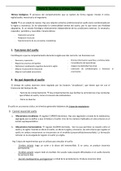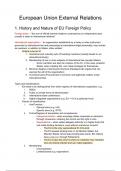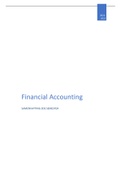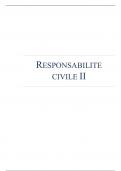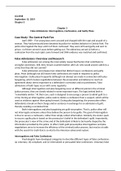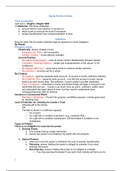GLOBALISATION: Increasingly unconstrained flow of: goods, people, knowledge, communication, and
finances
Social Welfare/Protection: new development revolution?
• If development is about helping poor people out of poverty, why not just give them money?
• National governments across most of Africa now provide welfare grants to poor people.
• Is this an appropriate strategy for development?
What is social welfare/protection?
• The term ‘welfare’ is more broadly used to encompass a range of policy issues aimed at
protecting individuals in need and society as a whole, improving well-being, promoting
happiness etc.
• ‘Welfare’ as a term has been used more commonly in industrialised/advanced capitalist
societies in North America (USA, Canada) and Western Europe (UK, Germany, Scandinavia)
Social
assistance
(support for
those in
poverty)
Social insurance
Protection against Labour market
regulation
contingencies such
as maternity, old
Social (basic standard
age, unemployment, Protection conditions for
sickness. e.g. employees in
contributory old age the workplace)
pension, medical aid
Social Protection should be seen as an investment in people, and not just an expense. Predictable
and regular social protection boosts economic growth by increasing purchasing capacity. However,
social protection alone cannot lift people out of poverty.
Social Protection:
- Public actions taken in response to levels of vulnerability, risk and deprivation which are
deemed socially unacceptable within a given polity or society.
- The full range of protective transfers, services, and institutional safeguards supposed to
protect the population ‘at risk’ of being ‘in need’.
, - UN, World Bank and ILO have their own definitions
Unconditional Social Cash Transfers: Minimum amount of income/money that the government/state
gives to a poor family (Hanlon, 2009: 3)
Welfare Payment: Conditional or unconditional income paid to the poor, disabled, unemployed and
low )
Debates about vulnerability, deserving vs undeserving, and dependency
Vulnerability: the likelihood of being in poverty in the future
- Categories of people considered vulnerable: people in old age; orphaned children, disabled,
chronically ill, unemployed and low paid
- Why they are vulnerable: Unable to work; no guarantee of future earnings; can’t plan for the
future; limited opportunities e.g. for education (in the case of orphaned children)
- Reasons for vulnerability: Globalization and economic transformation (impact on
unemployment); violence and conflict; impact of HIV/AIDS; Low farm productivity (including
from climatic, economic and political shocks)
Dependency: the claim that vast numbers of people receiving income transfers become guilty of
relying on them, demotivated and indolent (lazy). Goes alongside ‘addiction’.
Two dominant views about social cash transfers/welfare grants:
(i) They are effective for addressing extreme poverty
(ii) They are handouts that cause the poor to be dependent on the state for survival, and to
become lazy
Why should we give money to the poor?
• “Give a man a fish, and you feed him for a day. Teach a man to fish and you feed him
for a lifetime” (Chinese proverb)
• But, having training or education does not guarantee a job
• Having a job does not guarantee a decent standard of living
Give a man a fish: core arguments
The neoliberal approach/market friendly policies adopted by many Southern African
countries in the 1990s e.g. Mozambique, Zambia, Zimbabwe, called for the opening
up of markets (via privatization) to stimulate economic growth
These programmes were supported by the World Bank and the IMF
South Africa also adopted a neoliberal approach through the implementation of the
Growth with Employment and Redistribution (GEAR) programme in 1996
Focus is on what the economy can offer, not what the government can offer.
Outcome of neoliberal approach
• Economic growth was limited
, • Failure to generate much employment
• Agriculture, manufacturing and mining jobs were lost
• Affected earnings of low-skilled and low-waged workers in both urban and rural
areas
• Results: increased inequality (to levels exceeding those under apartheid, in the case
of South Africa); mass unemployment; and lack of full social inclusion
• This holds true for most of Southern Africa as well
Coverage & Expenditure of South Africa’s grants
In South Africa, grants are paid to more than 16 million individuals (about 30% of
the population)
Nearly 3 million South Africans aged 60 and over receive old age pensions (each with
a value of R1,260 or US$125 per month i.e. as at 2015)
Another 11 million receive child support grants (R300 or US$ 30 per child per month
as at 2015)
These benefits are non-contributory (not based on previous payment made by
beneficiary) and are paid directly from state treasury (Ferguson, 2015: 6)
Impact of grants
In South Africa, the percentage of households that reported experiencing hunger
decreased from 30% in 2002 to 13% in 2012 (Statistics South Africa cited by
Ferguson, 2015:7)
Between 2006 and 2011, cash transfers reduced ultra-poverty from a rate of 34% to
less than 12% (Seekings & Nattrass, 2015: 154)
Child Support Grant (CSG) yielded positive development outcomes in terms of:
improved nutrition; education, and health outcomes (Ferguson, 2015: 7)
Report on living standards based on concrete lifestyle markers such as the presence
of running water, flush toilets and ownership of key goods and appliances found
that the proportion of South African adults falling into the lowest categories for living
standards had fallen from 11% of the population in 2001 to just 1% in 2011
(Ferguson, 2015: 7)
Income inequality (as measured by Gini-coefficient) reduced marginally; it still
remains high (Seekings & Nattrass, 2015: 154). The rich were still getting richer. So
does welfare help the poor “catch up” or does it just keep them satisfied?
Kenya:
Impact evaluations show improvements in food security and diet amongst orphans
and vulnerable children

